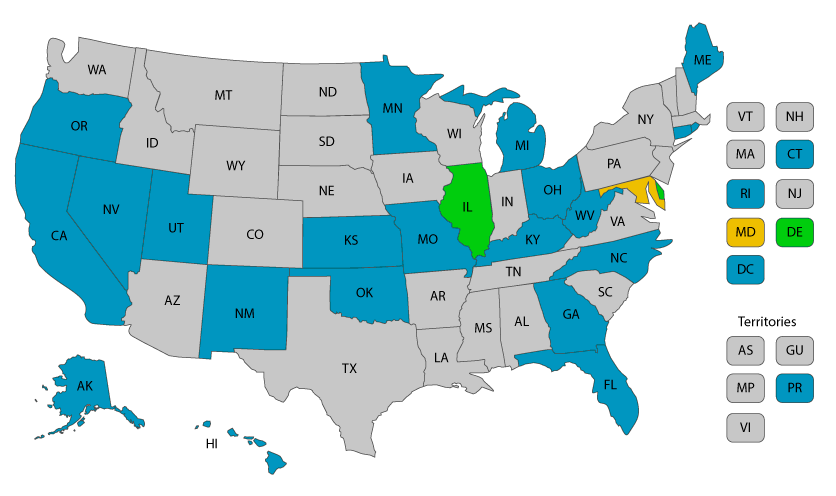Status of State and Territory Participation in the National Background Check Program for Long-Term-Care Employees
The Patient Protection and Affordable Care Act provides grants to States to implement background check programs for prospective employees who provide patient care in 10 types of long-term-care settings such as nursing facilities, home health agencies, and hospices. Ensuring that these employees have undergone screenings helps protect patients in these settings. In an Interim Report, National Background Check Program for Long-Term Care Employees, OIG describes the status and results of the first 4 years of the grant program.
The map below identifies those States and Territories that are participating or have participated in the grant program. It focuses on the following three key grant milestones related to initial and ongoing background checks:
- Obtaining enabling legislation to conduct background checks (i.e., checking State-based abuse and neglect registries and databases, State criminal history records, and FBI criminal history records);
- Collecting fingerprints; and
- Monitoring of criminal backgrounds after initial employment.
Beyond achieving these key milestones, States must conduct background checks in all 10 long-term-care settings, disqualify individuals for employment as appropriate, and report the results of their efforts quarterly to the Centers for Medicare & Medicaid Services. Once Federal financial participation in the grant program has ended, it is up to the States to determine how to finance their respective programs.
Information is current as of September 30, 2014, and as reported by States in their quarterly progress reports.
View a text-based version of this series.

Unlisted States and Territories do not participate in the voluntary grant program.

